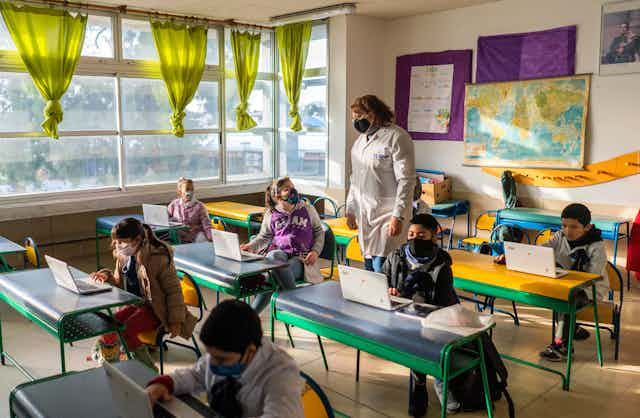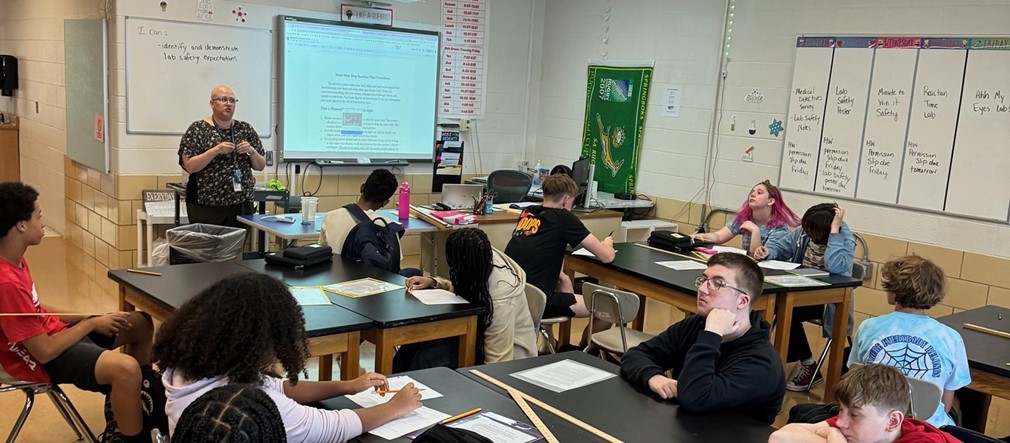The Function of Parents and Teachers in the Effort to Save Temecula Schools
The Function of Parents and Teachers in the Effort to Save Temecula Schools
Blog Article
Just How Schools Play a Vital Function in Shaping Future Leaders and Trendsetters
Schools contribute in forming future leaders and innovators with the growing of crucial thinking, imagination, and collaboration. By incorporating project-based understanding and interdisciplinary studies, schools test students to evaluate and manufacture intricate information. Teachers act as coaches, directing students and nurturing their potential, while after-school activities even more create management abilities and resilience. This vibrant setting not only concentrates on specific staminas however likewise emphasizes the value of synergy, essential for navigating tomorrow's obstacles. How exactly do these elements interaction to produce a robust structure for future success?
Promoting Essential Thinking
In today's rapidly progressing world, cultivating vital assuming within academic institutions has become paramount. As society faces significantly intricate international obstacles, the capacity to assess, review, and manufacture info is important. Schools play an essential duty in creating these abilities, preparing students to navigate and address diverse problems with notified, reasoned choices.
To grow critical reasoning, teachers utilize different instructional approaches that motivate energetic discovering and intellectual engagement. Class discussions, problem-based knowing, and Socratic questioning are important in promoting logical and reflective idea processes. By testing students to interrogate assumptions and take into consideration multiple perspectives, these techniques guarantee a deeper understanding of subject past rote memorization.
In addition, integrating critical thinking across the curriculum enhances its value and applicability in diverse contexts. Topics such as mathematics, scientific research, history, and literature each deal special opportunities to establish trainees' essential professors. For example, assessing historical occasions calls for examining resources and recognizing context, while clinical query needs strenuous theory testing and evidence-based thinking.
Eventually, instilling critical believing skills in trainees outfits them with the cognitive tools necessary for lifelong knowing and adaptability. It is through this fundamental competence that future leaders will certainly be able to innovate, solve problems, and contribute meaningfully to society.
Motivating Creativity
Embracing creativity within instructional structures galvanizes pupils to think past traditional limits and explore ingenious remedies. By incorporating imaginative endeavors and imaginative thinking exercises into the educational program, colleges grow an environment where originality and imaginative idea are valued. This approach not just enhances the academic experience but likewise outfits students with the ability to tackle real-world obstacles in novel ways.
Educational establishments can cultivate imagination via diverse ways such as project-based discovering, interdisciplinary researches, and the unification of arts and modern technology. Project-based knowing, for example, encourages students to apply their expertise in practical, often collective, jobs that require creative analytic skills. Interdisciplinary research studies allow students to draw connections in between different subjects, consequently expanding their perspectives and enhancing their innovative capacities.
Additionally, offering trainees with opportunities to involve with emerging technologies, such as coding and electronic style, better nurtures their imaginative capacity. These tasks prompt trainees to experiment, stop working, and iterate, which are critical elements of the imaginative process (Save Temecula Schools). By preserving a helpful environment where trial and error is urged, institutions can make certain that students develop the confidence to go after cutting-edge concepts
Essentially, supporting creativity in instructional settings is essential for forming future leaders and innovators with the ability of resolving intricate international problems with ingenuity.
Supporting Collaboration

Executing group-based knowing components and cooperative projects permits pupils to experience the characteristics of teamwork firsthand. This not just prepares them for the collective nature of contemporary work environments however likewise supports leadership top qualities as they frequently need to handle roles such as task supervisors or group coordinators. Furthermore, cooperation in the classroom can damage down social barriers and advertise inclusivity, making sure that each student feels valued and listened to.
Additionally, integrating technology can additionally support collective efforts. Tools like common interactive systems and digital work spaces Going Here allow trainees to collaborate efficiently, also outside the classroom. As pupils create these collective abilities, they are better outfitted to deal with complicated difficulties and introduce, laying the groundwork for their future duties as leaders and innovators.
Role of Educators as Mentors

Mentorship includes personalized interest, where teachers identify and support individual toughness and address weaknesses. Save Temecula Schools. Through individually communications, educators can tailor their suggestions and support to satisfy each student's distinct requirements, fostering a sense of confidence and resilience. This personalized method grows a growth mindset, motivating trainees to view failures as chances for finding out and development
In addition, instructors function as good example, demonstrating the values of willpower, compassion, and honesty. Their activities and perspectives supply a plan for trainees to emulate, instilling a sense of ethical responsibility and social awareness. By developing a inclusive and encouraging classroom atmosphere, educators allow students to establish social abilities that are critical for effective management.
Fundamentally, the mentorship provided by educators lays a fundamental structure for the advancement of future leaders, equipping them with the expertise, skills, and values required to stand out in an ever-evolving world.
Impact of After-school Activities
When integrated successfully right into the academic framework, after-school activities significantly improve pupil growth and management potential. These tasks provide students with chances to check out rate like this of interests beyond the traditional curriculum, cultivating a versatile ability. Clubs, sports teams, and arts programs cultivate important qualities such as team effort, time monitoring, and durability. Participation in these tasks often calls for pupils to take on obligations, consequently nurturing their leadership capabilities.
Additionally, extracurricular participation encourages imagination and development. Pupils participated in music, dramatization, or discussion clubs find out to believe critically and technique troubles from diverse perspectives. These experiences infuse confidence, allowing students to voice their ideas and take initiative in various setups. By working together with peers from different histories, trainees additionally establish compassion and communication skills, necessary attributes for future leaders.
After-school activities additionally play a critical duty in scholastic efficiency. Research suggests that students included in such programs have a tendency to have higher grades and much better attendance records. These tasks offer a healthy and balanced electrical outlet for stress and anxiety, adding to general wellness. Thus, colleges that prioritize a well balanced strategy to education, integrating robust extracurricular programs, are more probable to generate leaders and trendsetters equipped to meet the obstacles of the future.

Verdict
In final thought, schools significantly shape future leaders and trendsetters by nurturing essential thinking, creativity, and cooperation among trainees. By fostering an encouraging atmosphere that values individual staminas and teamwork, institutions furnish trainees with the needed skills to browse future difficulties and drive advancement.
As trainees develop these joint skills, they are better furnished to deal with complicated obstacles and introduce, laying the groundwork for their future roles as trendsetters and leaders.
By promoting critical thinking and analytic skills, educators aid trainees navigate complicated obstacles, preparing them for management functions in different areas.
By collaborating with peers from different histories, pupils additionally create compassion and interaction abilities, important qualities for future leaders.
In verdict, colleges significantly shape future leaders and pioneers by supporting important thinking, imagination, and collaboration amongst pupils. By cultivating a supportive environment that values private strengths and synergy, schools outfit students with the essential abilities to navigate future obstacles and explanation drive innovation.
Report this page